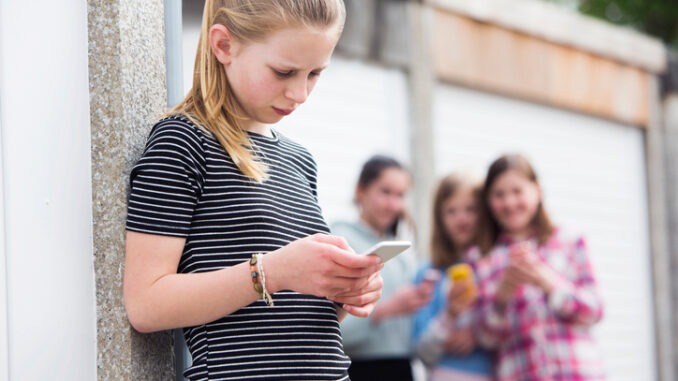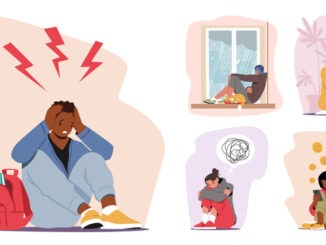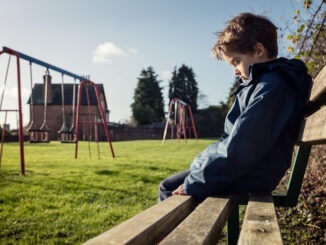
As Anti-Bullying Week comes to an end, the NSPCC shares vital insights into child bullying, offering advice and data to empower both young individuals and adults
The week is co-ordinated by the Anti-Bullying Alliance and this year’s theme is ‘Make A Noise About Bullying.’
This year’s theme encourages everyone to come together to have discussions about what bullying means to us, how banter can turn into something more hurtful, and what we can do to stop bullying.
This Anti-Bullying Week (w/c 13th November) the NSPCC is offering:
- New data from Childline, the counselling service for children.
- Quotes from young people, Shaun Friel, Childline Director and Martha Evans, Director of the Anti-Bullying Alliance
- Advice for young people and parents and carers.
- Spokespeople for interview upon request
- Real life stories for interview upon request
Childline data
- From April 2022 to March 2023 Childline delivered 8,011 counselling sessions to children and young people about bullying.
- 7,077 of these counselling sessions were about bullying in-person. A 2% increase in comparison to the previous year.
- 934 counselling sessions were about online bullying.
- The top concerns where a child spoke to Childline about in-person bullying included: verbal bullying, physical bullying, bullied about difference and being left out.
- For counselling sessions on online bullying the top concerns included: nasty comments, bullying in group chats, bullying on social networking sites, and being threatened and intimidated online.
Quotes from: children who contacted Childline about bullying
A girl aged 13 told Childline: “My bully had been threatening to beat me up for weeks. The girl cornered me today and shoved my head into a wall. She did it so hard that it gave me a nosebleed. I’m scared it’s only going to get worse”
A boy aged 16 told Childline: “Out of nowhere these accounts started commenting on my posts accusing me of being a sex offender, racist, homophobic, everything like that they can think of. I deleted the comments and blocked the accounts but now there’s reels about it too. I’m worried someone will think that they’re true. Can you help me get these taken down?”
Snapshots are based on real Childline service users but are not necessarily direct quotes. All names and potentially identifying details have been changed to protect the identity of the child or young person involved
Shaun Friel, Childline Director said:
“At Childline our trained counsellors hear from children on a daily basis who are being bullied.
“For some, this is taking place at school in the classroom and playground, whereas for others it’s happening online on social media sites and in group chats.
“No matter how or where a child is being bullied, our trained counsellors know that without the right support it can have significant impact on a child’s mental health and wellbeing and many tell us it has left them feeling sad, overwhelmed and lonely.
“That’s why this Anti-Bullying Week we want to remind all children and young people that if they are being bullied that it is essential that they reach out for help from a safe adult such as a parent, carer, teacher or Childline.
“Childline is always here to be a source of support for children and young people and our counsellors are available 24/7 over the phone and online.”
Advice for children
- Share how you are feeling with other young people. Childline’s monitored online message boards are a safe non-judgemental space where you can speak to other children who are in a similar situation to you about your experiences and feelings. This can help you feel less alone and will give you an online support network that you can turn to.
- Talk to an adult you trust about the bullying you are experiencing so you feel less alone and so that adult can support you. This could be a parent, teacher or you can speak to a Childline counsellor on 0800 1111 or online at childline.org.uk
- Take a break from your device if you are being bullied online and do something you enjoy such as sport, listening to music or art.
- Remember that bullying is not your fault.
- Report and block someone if they are sending you messages online that upset you.
For Adults:
Signs to spot that your child may be being bullied online:
- Not wanting to go to school or take part in normal activities.
- Getting anxious or angry if you go near their device.
- Feeling withdrawn, upset or angry at home.
- Problems sleeping or eating.
- Having angry outbursts that seem out of character.
- Spending more or less time online than normal.
Signs to spot that your child may be being bullied in person
Belongings are getting lost or damaged.
Physical injuries such as unexplained bruises.
Being afraid to go to school.
Not doing as well at school.
Being nervous, losing confidence, or becoming distressed and withdrawn.
Problems with eating or sleeping.
Bullying others.
What to do if you think your child is being bullied
- Talk to your child and remind them to come to you with anything that might be making them feel anxious or sad. If your child speaks to you about an experience of bullying that they’ve had online or in person, try to remain calm and don’t overwhelm them with questions and reassure them that it will be ok, and that you’re always there for them.
- Show them how to report or block a message that they’ve received from someone online that upsets or worries them.
- Don’t take their device away if they’ve had a negative experience online. Although you may want to do this if they are upset, this may make them feel like whatever has happened is their fault. Instead, suggest they take some time away from the app they received the messages on and do another online activity they enjoy like playing a game.
- Know where you can get further support. Adults can call the NSPCC Helpline for advice on 0808 800 5000. There is also further advice on the NSPCC website.



Be the first to comment